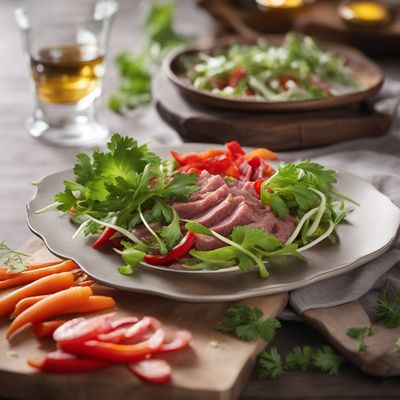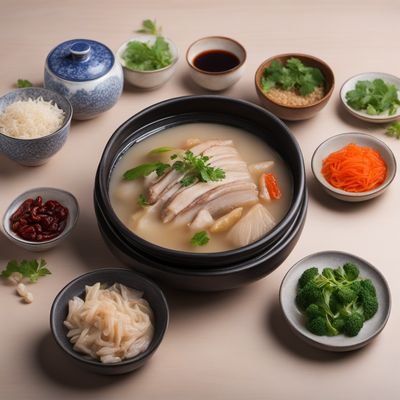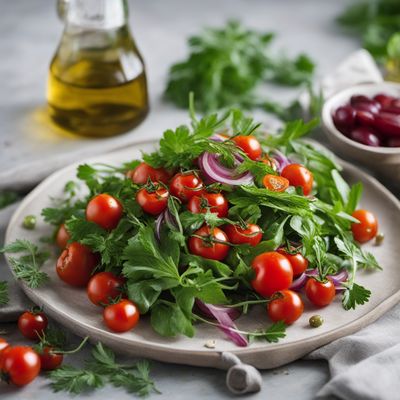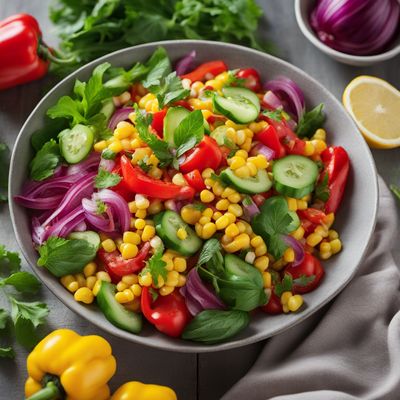
Ingredient
White mustard seeds
The Ivory Spice
White mustard seeds are small, round seeds with a creamy white color and a slightly bitter, pungent taste. They have a crunchy texture when raw, but become milder and nuttier when toasted or cooked. These seeds are commonly used in Indian, Mediterranean, and Middle Eastern cuisines for their unique flavor and aroma.
Origins and history
White mustard seeds have been cultivated for thousands of years and have a rich history in various cultures. They were used in ancient Rome and Greece for both culinary and medicinal purposes. Today, they are widely grown in countries like India, Canada, and the United States.
Nutritional information
White mustard seeds are a good source of protein, fiber, and various minerals such as calcium, iron, and magnesium. They also contain antioxidants and compounds that may have anti-inflammatory properties.
Allergens
There are no known allergens associated with white mustard seeds.
How to select
When selecting white mustard seeds, look for seeds that are plump, firm, and free from moisture or signs of mold. Avoid seeds that appear discolored or have a rancid smell. Opt for organic or high-quality brands to ensure freshness and flavor.
Storage recommendations
To maintain their freshness and flavor, store white mustard seeds in an airtight container in a cool, dark place, away from direct sunlight or heat. They can last for up to one year when stored properly.
How to produce
White mustard seeds can be easily grown at home by sowing the seeds in well-drained soil and providing adequate sunlight and water. They can be harvested when the seed pods turn brown and dry. Once harvested, the seeds can be dried and stored for future use.
Preparation tips
White mustard seeds can be ground into a fine powder or used whole in various dishes. They are commonly used in pickling, marinades, salad dressings, and spice blends. Toasting the seeds before use enhances their flavor and aroma. They can also be used as a crunchy topping for breads, salads, or roasted vegetables.
Substitutions
Black mustard seeds can be used as a substitute for white mustard seeds, although they have a stronger and more pungent flavor. Yellow mustard seeds can also be used as a milder alternative. Ground mustard powder can be used in place of whole seeds, but the flavor will be more intense.
Culinary uses
White mustard seeds are widely used in Indian cuisine, particularly in dishes like curries, chutneys, and pickles. They are also used in Mediterranean and Middle Eastern cuisines, such as in hummus, falafel, or as a spice rub for grilled meats. Additionally, they can be used to make homemade mustard or added to salad dressings for an extra kick.
Availability
White mustard seeds are commonly available in grocery stores, supermarkets, and specialty spice shops. They can also be purchased online from various retailers.
More ingredients from this category
Recipes using White mustard seeds » Browse all

Huzarensalade
Dutch Delight Salad

Szałot with a Twist
Polish Delight: A Modern Twist on Szałot

Classic Loose Meat Sandwich
Savory Sloppy Joe Sliders

Homemade Gourmet Hot Dogs
Savory Delights: Elevating the Classic American Hot Dog

Benin-style Goat Soup
Savory Delight: Benin-inspired Goat Soup

Haipai-style Ginseng Chicken Soup
Savory Ginseng Infusion: Haipai-style Ginseng Chicken Soup

Oceanic Seafood Soup
Tropical Delight Seafood Soup

Lithuanian-style Fermented Soybeans
Savor the Tangy Delight: Lithuanian-style Fermented Soybeans

Käferbohnensalat with Herb Vinaigrette
Savory Herb-infused Käferbohnensalat: A Delightful German Bean Salad

Teochew-style Yam Cake
Savory Yam Delight: Teochew-style Yam Cake

Dutch-Inspired Gumbo
Dutch-Inspired Gumbo: A Hearty Fusion of American and Dutch Flavors

Colorful Vegetable Salad
Garden Delight Salad: A Burst of Freshness in Every Bite